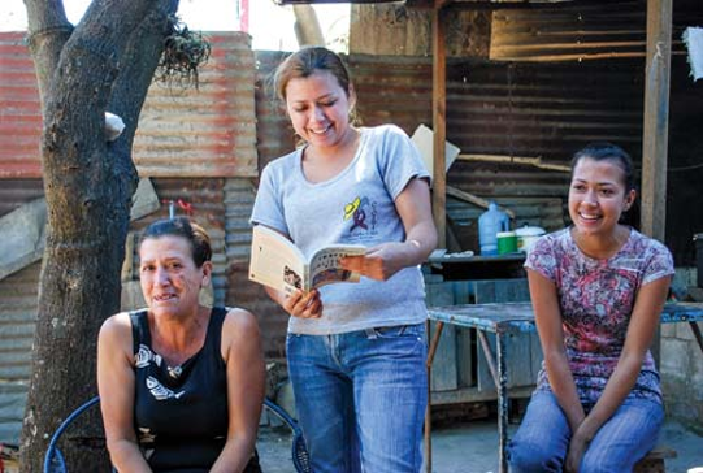Travel Reference
In-Depth Information
We sat down to a lunch of brawny chicken, chicken soup, delicious fresh-ground corn
tortillas, and a tall plastic bottle of Coke to share. Their Christmas tree looked a little
funny; they explained that it was the bottom half of a fake tree that they shared with an
uncle—they just bent up one of the big branches to give it a “top.”
Like many families, Beatriz's husband had emigrated to the USA with the promise of
sending home money. Eventually the money stopped flowing, and he established his own
life in the States. He's now married again, with a second crop of children.
Beatriz's daughters are now well into their twenties and, I imagine, would like to live
on their own. But that's not possible. They each work 48-hour weeks and make about
$300 per month (about $1.50 per hour). It's typical for young women to work in textile
plants sewing garments for international corporations. As part of a globalized labor force,
they are competing with the most desperate labor on the planet. These
maquiladora
plants,
while pretty miserable by US standards, are considered a blessing here, as they bring rel-
atively solid jobs to a land otherwise without much industry.
The driving daily concern for Beatriz and her daughters is no longer the old war
against a military dictatorship, but the new war against crime and the rising cost of living.
The daughters told of the daily fear they experience riding the bus to work. Routinely

